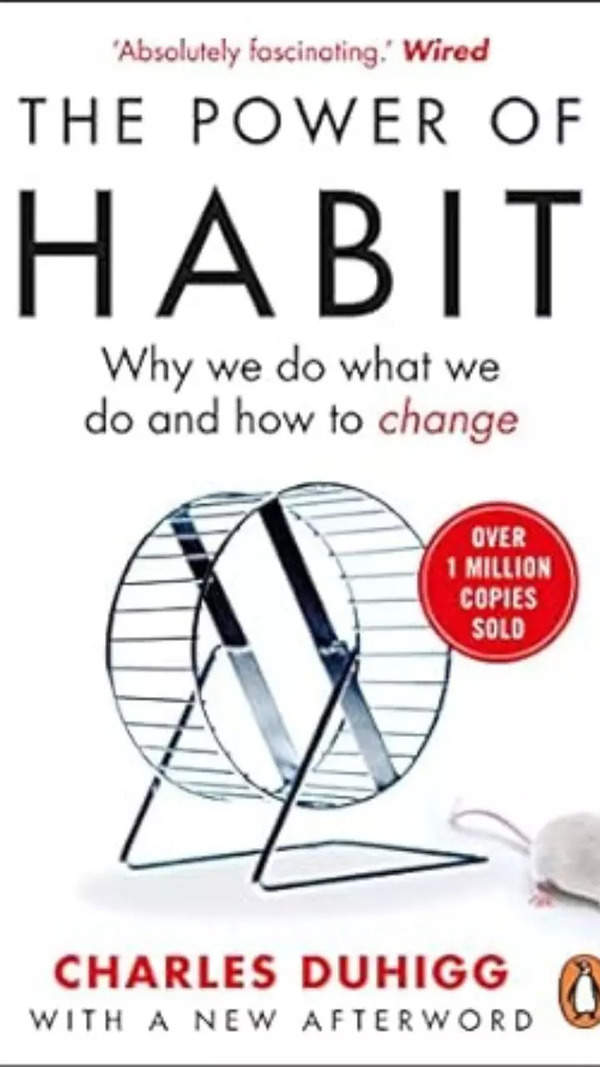- News
- lifestyle
- relationships
- love-sex
- Is it okay to check your spouse’s phone?
Trending
This story is from June 12, 2016
Is it okay to check your spouse’s phone?
A woman techie in Bengaluru, Sunitha Singh, recently attacked her husband with a kitchen knife because he was reading text messages on her phone!

Key Highlights
• The fact that technology has made modern relationships vulnerable cannot be denied.
• We all lead very social lives digitally, yet have become maniacally obsessive about our ‘personal space’, or what we call private.
• We all lead very social lives digitally, yet have become maniacally obsessive about our ‘personal space’, or what we call private.
A woman techie in Bengaluru, Sunitha Singh, recently attacked her husband with a kitchen knife because he was reading text messages on her phone! While this may be a one-off incident where physical violence was involved, the fact that technology has made modern relationships vulnerable cannot be denied. We all lead very social lives digitally, yet have become maniacally obsessive about our ‘personal space’, or what we call private.According to marital therapist Andrew G Marshall – author of My Husband Doesn’t Love me and He’s Texting Someone Else, spying on a loved one stems from a desire to control. He says, “Smartphones have added complexity to relationships. Nobody knows where to draw the line where privacy is concerned.”
Whether it’s with or without intent, temptation comes in a blink. When your partner’s charging his/her cellphone, you snoop in to check his latest Whatsapp message or e-mail.
Aaron Balick, author of The Psychodynamics of Social Networking though believes technology is not completely to blame for snooping behaviour, but it has “lowered the bar”as this generation needs a re-education on what’s acceptable or unacceptable as far as digital boundaries go. We didn’t have gadgets controlling our minds and lives to this extent earlier. Today, all of us are attached to them 24x7 – and our digital footprints are there for anyone to see/discover. The phones are there in front of us, goading us to get a glimpse of the life of our partners and loved ones. The temptation to snoop, even if it feels wrong at times, maybe too much to resist. How does one handle such a situation? We open the forum for a discussion...
- A recent survey by online security firm McAfee suggested that 42% people look at the emails of their other half and one in five people are likely to log into their significant other’s Facebook account at least once a month.
- Another security firm Avast surveyed 13,132 people in relationships across the US, and found that one in five men, and a quarter of women check their partner’s phones. Almost a quarter of snoopers do so just because they are nosey, but 12% said they were trying to catch their partner lying.
We are separate individuals, therefore our phones are private
I don’t think partners should be snooping on each other’s phone. There has to be some space between you and your partner, no matter what. That’s a sign of trust and of a healthy relationship. We are separate individuals, and therefore our phones are private. Next comes my partner and family. And this, I believe, should be respected by everyone.
- Shazahn Padamsee, actor
Checking information can lead to misunderstandings – damaging relationships
It’s all about trust. When two individuals decide to share their life together, they trust each other in every aspect of their relationship and life. Secretly prying on your partner’s phone implies that you do not trust your partner. Moreover, checking on information can also lead to misunderstandings, which is damaging to the relationship. For a strong and lasting relationship one needs to trust his/her partner and trust them to share information directly. Transparency is essential for a healthy and long-term bonding.
- Gautam Gulati, actor
More than privacy, it’s a sense of belonging that gets violated
I don’t think it’s right to look into your partner’s phone. It’s not about wrong or right if people trust each other. Their minds will not play any tricks. They will not be in the mistrust zone. More than privacy it’s a sense of belonging that gets violated for both the sexes. Neither men nor women should encroach upon their partner’s privacy. Trust goes a long way in building a sense of mutual faith.
- Vani Tripathi, politician
Sharing passwords isn’t a sign of love
Snooping does nothing for a relationship. Even if you snoop, your partner could have a hidden contact. He/she may be impossible to catch. But looking at your partner’s phone will not give you any satisfaction or awareness, as there are ways to hide your chats/messages/contacts. Then, at the other end of the spectrum, are couples who share the same passwords! Another extreme. Couples need to maintain their individual identities. Sharing passwords is not a sign of love. Mobiles have made it easier to get in touch with a forgotten ex-flame at the touch of a click. Snooping on your partner will not save your relationship either. Rather, use technology to enhance your love. By snooping, you will lose it for sure.
- Preeti Shenoy, author
Unlike the US and UK, India doesn’t recognise privacy constitutionally
As society progresses towards a conscious need for personal space, and respecting the individual’s boundaries, the debate about right to privacy has become the centre of focus. In India, unauthorised access to one’s personal files, documents, photographs may be actionable and lead to a breakdown of relations. In countries like the US and UK, this is an absolute right provided to one and all, irrespective of the relationship shared. At this juncture, keeping in mind the social structure in India, it must be noted that privacy is not constitutionally recognised; rather it is an implied right that aids in the holistic understanding of the right to life.
- Pinky Anand , Additional Solicitor-General of India
It can become addictive and feed your voyeuristic tendencies
No good can come out of looking at your partner’s phone. Texts can be read out of context and will leave room for misinterpretation, planting seeds of doubt. It can also be addictive and feed your voyeuristic tendencies. It is really a breach of trust and if you love and respect your partner, then respect their freedom and privacy. Allow them the dignity of personal space to think and speak with other people in their lives just the way they want to.
- Malti Bhojwani, author and life coach
I’m perfectly fine if it’s done with the right intention
I totally believe, such incidents are circumstantial. Moreover, it depends on the space that both partners have defined for each other in the relationship. I am perfectly fine, with the fact that a spouse is checking the mobile, as far as it is done with the right intention. It shouldn’t be done to bully/humiliate the other person. I think spouses should be aware of each other’s whereabouts as part of caring, and hence checking the mobile doesn’t breach any privacy. However, I would surely discuss with him politely and understand his apprehensions if I want to check his phone.
- Prachi Garg, author
If one wants access, one has to gently ask
Prying on your spouse’s phone does nothing for your relationship. It’s an invasion of privacy. If one wants access, you have to gently ask. I know of couples who use one mobile between them. However, doing so in a clandestine way doesn’t work. The trust in a relationship or marriage should be enough for you to follow the ‘hands off’ policy on your significant other’s mobile. Intimacy in a relationship does not stretch to monitoring your spouse’s email or phone.
- Vijay Arora, designer
Isn’t your phone just a tool to communicate? Why the fuss?
It is funny but most people get a mild heart attack when someone wants to check their phone. Isn’t your phone just a tool to communicate? Why the fuss? When your partner looks at your phone, it becomes a danger sign. I believe checking your partner’s phone is huge invasion of privacy. Phones are checked to make sure that he or she is doing the right thing and to get rid of any fear and insecurities. As mature people, it is better to deal with this in a dignified way by communicating openly with each other rather than being an FBI agent.
- Jaspreet Kaur, Image consultant
Whether it’s with or without intent, temptation comes in a blink. When your partner’s charging his/her cellphone, you snoop in to check his latest Whatsapp message or e-mail.
Aaron Balick, author of The Psychodynamics of Social Networking though believes technology is not completely to blame for snooping behaviour, but it has “lowered the bar”as this generation needs a re-education on what’s acceptable or unacceptable as far as digital boundaries go. We didn’t have gadgets controlling our minds and lives to this extent earlier. Today, all of us are attached to them 24x7 – and our digital footprints are there for anyone to see/discover. The phones are there in front of us, goading us to get a glimpse of the life of our partners and loved ones. The temptation to snoop, even if it feels wrong at times, maybe too much to resist. How does one handle such a situation? We open the forum for a discussion...
- A recent survey by online security firm McAfee suggested that 42% people look at the emails of their other half and one in five people are likely to log into their significant other’s Facebook account at least once a month.
- Apps like Swipebuster, FlexiSPY and mSpy help couples track each other’s texts.
- Another security firm Avast surveyed 13,132 people in relationships across the US, and found that one in five men, and a quarter of women check their partner’s phones. Almost a quarter of snoopers do so just because they are nosey, but 12% said they were trying to catch their partner lying.
We are separate individuals, therefore our phones are private
I don’t think partners should be snooping on each other’s phone. There has to be some space between you and your partner, no matter what. That’s a sign of trust and of a healthy relationship. We are separate individuals, and therefore our phones are private. Next comes my partner and family. And this, I believe, should be respected by everyone.
- Shazahn Padamsee, actor
Checking information can lead to misunderstandings – damaging relationships
It’s all about trust. When two individuals decide to share their life together, they trust each other in every aspect of their relationship and life. Secretly prying on your partner’s phone implies that you do not trust your partner. Moreover, checking on information can also lead to misunderstandings, which is damaging to the relationship. For a strong and lasting relationship one needs to trust his/her partner and trust them to share information directly. Transparency is essential for a healthy and long-term bonding.
- Gautam Gulati, actor
More than privacy, it’s a sense of belonging that gets violated
I don’t think it’s right to look into your partner’s phone. It’s not about wrong or right if people trust each other. Their minds will not play any tricks. They will not be in the mistrust zone. More than privacy it’s a sense of belonging that gets violated for both the sexes. Neither men nor women should encroach upon their partner’s privacy. Trust goes a long way in building a sense of mutual faith.
- Vani Tripathi, politician
Sharing passwords isn’t a sign of love
Snooping does nothing for a relationship. Even if you snoop, your partner could have a hidden contact. He/she may be impossible to catch. But looking at your partner’s phone will not give you any satisfaction or awareness, as there are ways to hide your chats/messages/contacts. Then, at the other end of the spectrum, are couples who share the same passwords! Another extreme. Couples need to maintain their individual identities. Sharing passwords is not a sign of love. Mobiles have made it easier to get in touch with a forgotten ex-flame at the touch of a click. Snooping on your partner will not save your relationship either. Rather, use technology to enhance your love. By snooping, you will lose it for sure.
- Preeti Shenoy, author
Unlike the US and UK, India doesn’t recognise privacy constitutionally
As society progresses towards a conscious need for personal space, and respecting the individual’s boundaries, the debate about right to privacy has become the centre of focus. In India, unauthorised access to one’s personal files, documents, photographs may be actionable and lead to a breakdown of relations. In countries like the US and UK, this is an absolute right provided to one and all, irrespective of the relationship shared. At this juncture, keeping in mind the social structure in India, it must be noted that privacy is not constitutionally recognised; rather it is an implied right that aids in the holistic understanding of the right to life.
- Pinky Anand , Additional Solicitor-General of India
It can become addictive and feed your voyeuristic tendencies
No good can come out of looking at your partner’s phone. Texts can be read out of context and will leave room for misinterpretation, planting seeds of doubt. It can also be addictive and feed your voyeuristic tendencies. It is really a breach of trust and if you love and respect your partner, then respect their freedom and privacy. Allow them the dignity of personal space to think and speak with other people in their lives just the way they want to.
- Malti Bhojwani, author and life coach
I’m perfectly fine if it’s done with the right intention
I totally believe, such incidents are circumstantial. Moreover, it depends on the space that both partners have defined for each other in the relationship. I am perfectly fine, with the fact that a spouse is checking the mobile, as far as it is done with the right intention. It shouldn’t be done to bully/humiliate the other person. I think spouses should be aware of each other’s whereabouts as part of caring, and hence checking the mobile doesn’t breach any privacy. However, I would surely discuss with him politely and understand his apprehensions if I want to check his phone.
- Prachi Garg, author
If one wants access, one has to gently ask
Prying on your spouse’s phone does nothing for your relationship. It’s an invasion of privacy. If one wants access, you have to gently ask. I know of couples who use one mobile between them. However, doing so in a clandestine way doesn’t work. The trust in a relationship or marriage should be enough for you to follow the ‘hands off’ policy on your significant other’s mobile. Intimacy in a relationship does not stretch to monitoring your spouse’s email or phone.
- Vijay Arora, designer
Isn’t your phone just a tool to communicate? Why the fuss?
It is funny but most people get a mild heart attack when someone wants to check their phone. Isn’t your phone just a tool to communicate? Why the fuss? When your partner looks at your phone, it becomes a danger sign. I believe checking your partner’s phone is huge invasion of privacy. Phones are checked to make sure that he or she is doing the right thing and to get rid of any fear and insecurities. As mature people, it is better to deal with this in a dignified way by communicating openly with each other rather than being an FBI agent.
- Jaspreet Kaur, Image consultant
End of Article
FOLLOW US ON SOCIAL MEDIA









